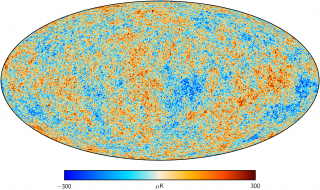Bibcode
Zacchei, A.; Maino, D.; Baccigalupi, C.; Bersanelli, M.; Bonaldi, A.; Bonavera, L.; Burigana, C.; Butler, R. C.; Cuttaia, F.; de Zotti, G.; Dick, J.; Frailis, M.; Galeotta, S.; González-Nuevo, J.; Górski, K. M.; Gregorio, A.; Keihänen, E.; Keskitalo, R.; Knoche, J.; Kurki-Suonio, H.; Lawrence, C. R.; Leach, S.; Leahy, J. P.; López-Caniego, M.; Mandolesi, N.; Maris, M.; Matthai, F.; Meinhold, P. R.; Mennella, A.; Morgante, G.; Morisset, N.; Natoli, P.; Pasian, F.; Perrotta, F.; Polenta, G.; Poutanen, T.; Reinecke, M.; Ricciardi, S.; Rohlfs, R.; Sandri, M.; Suur-Uski, A.-S.; Tauber, J. A.; Tavagnacco, D.; Terenzi, L.; Tomasi, M.; Valiviita, J.; Villa, F.; Zonca, A.; Banday, A. J.; Barreiro, R. B.; Bartlett, J. G.; Bartolo, N.; Bedini, L.; Bennett, K.; Binko, P.; Borrill, J.; Bouchet, F. R.; Bremer, M.; Cabella, P.; Cappellini, B.; Chen, X.; Colombo, L.; Cruz, M.; Curto, A.; Danese, L.; Davies, R. D.; Davis, R. J.; de Gasperis, G.; de Rosa, A.; de Troia, G.; Dickinson, C.; Diego, J. M.; Donzelli, S.; Dörl, U.; Efstathiou, G.; Enßlin, T. A.; Eriksen, H. K.; Falvella, M. C.; Finelli, F.; Franceschi, E.; Gaier, T. C.; Gasparo, F.; Génova-Santos, R. T.; Giardino, G.; Gómez, F.; Gruppuso, A.; Hansen, F. K.; Hell, R.; Herranz, D.; Hovest, W.; Huynh, M.; Jewell, J.; Juvela, M.; Kisner, T. S.; Knox, L.; Lähteenmäki, A.; Lamarre, J.-M.; Leonardi, R.; León-Tavares, J.; Lilje, P. B. et al.
Bibliographical reference
Astronomy and Astrophysics, Volume 536, id.A5
Advertised on:
12
2011
Journal
Citations
82
Refereed citations
76
Description
We describe the processing of data from the Low Frequency Instrument
(LFI) used in production of the Planck Early Release Compact Source
Catalogue (ERCSC). In particular, we discuss the steps involved in
reducing the data from telemetry packets to cleaned, calibrated,
time-ordered data (TOD) and frequency maps. Data are continuously
calibrated using the modulation of the temperature of the cosmic
microwave background radiation induced by the motion of the spacecraft.
Noise properties are estimated from TOD from which the sky signal has
been removed using a generalized least square map-making algorithm.
Measured 1/f noise knee-frequencies range from ~100 mHz at 30 GHz to a
few tens of mHz at 70GHz. A destriping code (Madam) is employed to
combine radiometric data and pointing information into sky maps,
minimizing the variance of correlated noise. Noise covariance matrices
required to compute statistical uncertainties on LFI and Planck products
are also produced. Main beams are estimated down to the ≈-10dB level
using Jupiter transits, which are also used for geometrical calibration
of the focal plane.
Corresponding author: A. Zacchei, e-mail: zacchei [at] oats.inaf.it (zacchei[at]oats[dot]inaf[dot]it)
Related projects

Anisotropy of the Cosmic Microwave Background
The general goal of this project is to determine and characterize the spatial and spectral variations in the temperature and polarisation of the Cosmic Microwave Background in angular scales from several arcminutes to several degrees. The primordial matter density fluctuations which originated the structure in the matter distribution of the present
Rafael
Rebolo López